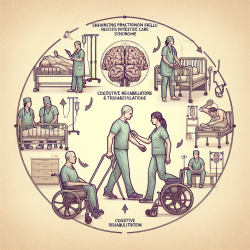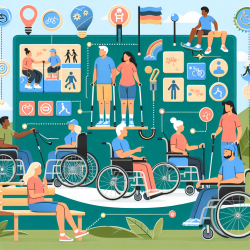The challenges faced by survivors of intensive care units (ICUs) extend far beyond their immediate recovery. Post-Intensive Care Syndrome (PICS) encompasses a range of cognitive, psychological, and physical impairments that can persist long after discharge. As practitioners, understanding and addressing these challenges is crucial to improving patient outcomes. This blog post delves into the findings of a comprehensive research article titled "Post-intensive care syndrome: impact, prevention, and management" and explores how practitioners can apply these insights to enhance their skills and patient care.
Understanding PICS: Prevalence and Impact
PICS affects a significant portion of ICU survivors, with cognitive impairments occurring in 30–80% of patients and psychiatric conditions such as anxiety and depression affecting 8–57%. Physical impairments are also prevalent in 25–80% of survivors. These conditions not only affect the patients but also have profound impacts on their families, often leading to financial strain and psychological distress.
Prevention Strategies: The ABCDEF Bundle
The research highlights the importance of prevention strategies during ICU stays. The "ABCDEF" bundle is an evidence-based approach that includes:
- A: Assessing and managing pain
- B: Breathing trials and spontaneous awakening
- C: Choice of sedative
- D: Daily delirium monitoring
- E: Early mobility
- F: Family engagement and empowerment
This bundle has shown promising results in reducing long-term cognitive impairment and physical decline among ICU patients.
The Role of Post-ICU Clinics
The establishment of post-ICU clinics aims to provide comprehensive assessments and rehabilitation for ICU survivors. These clinics offer a team-based approach involving various healthcare professionals to address the multifaceted needs of patients. However, the efficacy of these clinics compared to standard care remains an area for further research.
Cognitive and Physical Rehabilitation
Cognitive rehabilitation protocols like Goal Management Training have been developed to guide recovery efforts. Outpatient rehabilitation programs typically span 6–12 weeks post-discharge and may include patient-directed exercises, in-home therapist sessions, or telehealth services. These interventions have shown improvements in cognitive functioning and daily living activities.
The Importance of Awareness and Education
A critical barrier to effective PICS management is the lack of awareness among clinicians regarding the syndrome's prevalence and impact. Educating healthcare providers about PICS can enhance early diagnosis and intervention efforts. Additionally, developing standardized follow-up approaches is essential for consistent care delivery.
PICS remains a significant concern for ICU survivors and their families. By implementing evidence-based prevention strategies and fostering awareness among healthcare providers, we can improve patient outcomes significantly. For practitioners looking to deepen their understanding or contribute to this field, further research into PICS is highly encouraged.
Post-intensive care syndrome: impact, prevention, and management










